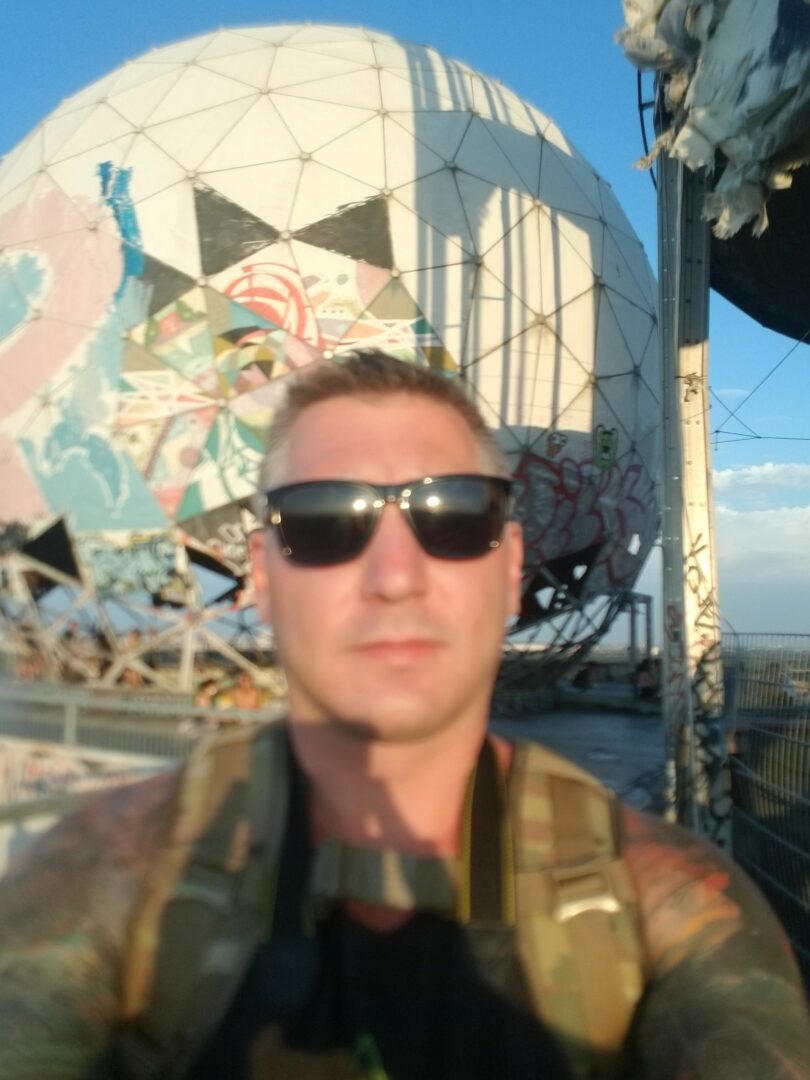We caught up with the brilliant and insightful Bradley Kahabka a few weeks ago and have shared our conversation below.
Hi Bradley, appreciate you sitting with us today to share your wisdom with our readers. So, let’s start with resilience – where do you get your resilience from?
During my early teen years, I began getting heavily involved in the Boy Scouts of America. At first you don’t know anyone there, just kind of thrust into a troop of other people your age and suddenly are expected to go camping and build all of these wilderness skills from scratch. I grew up in New York in the Adirondak’s and was lucky that my specific troop was very involved, went on extreme campouts and had a retired marine for a scoutmaster. We would canoe out to islands in the middle of nowhere in upstate NY and just go survive for a week and were also involved in a lot of camporees and international events. At that age you get teased in school for being in scouts, but the other kids never knew the cool things we were doing. It also taught and instilled in me some core values such as honesty, trustworthiness, integrity, thriftiness, Bravery, Courteousness and others. To leave no trace and leave a place in better shape than when you found it was another value that we followed. There were a lot of campouts that were -20 degrees, where we underestimated food supply and had to get creative and just adapt to surroundings in general. This also led me to eventually become a wilderness survival instructor at a large boy scout camp where I became a leader and was responsible for the wellbeing of others. That eventually led me to the Army as well, which honestly felt a lot like boy scouts but with bigger weapons and a stricter form of discipline. When I’m having a tough day or facing an obstacle, I often remember certain times in the Army, digging foxholes in the rain to sleep in at 1am, going on ruck marches with 50 plus pounds of gear, weapons training, and many, many, other instances where I know that if I got through all of that then anything else really is pretty easy in comparison. I think it’s all given me a mindset that nothing is ever a big of a deal as you make it, that these things will come and go, and life goes on. The outcome of your life is really determined by your attitude and what you make of it that matters.
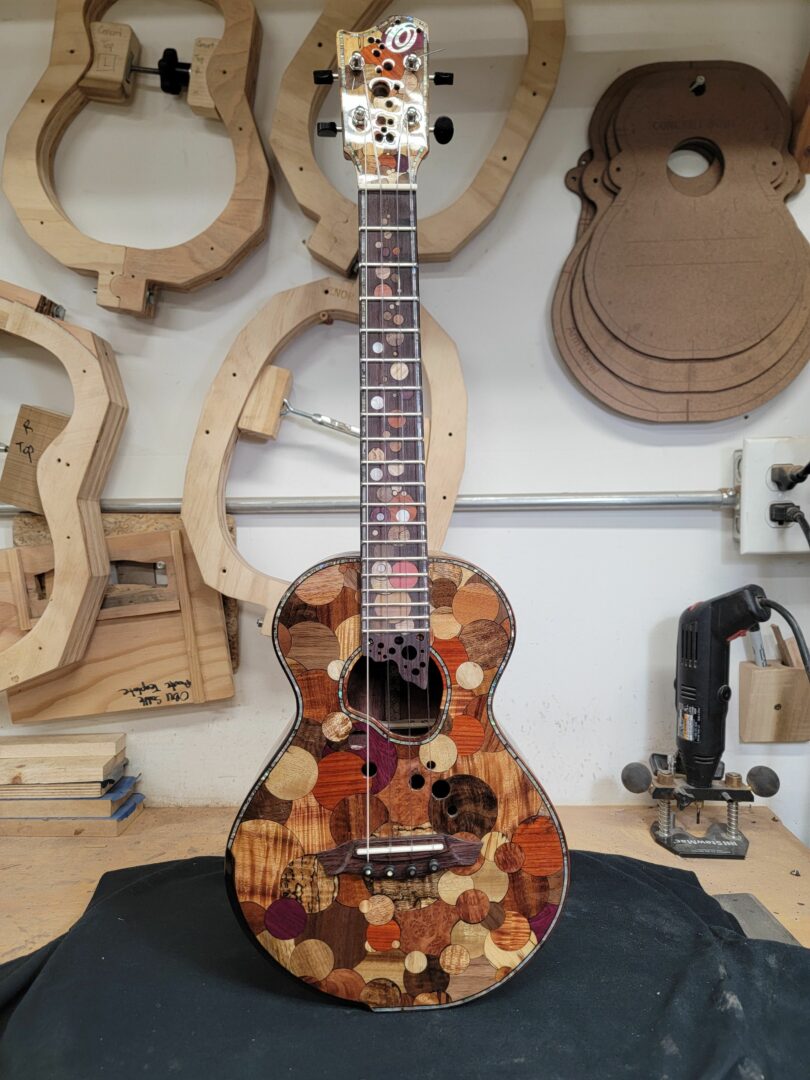
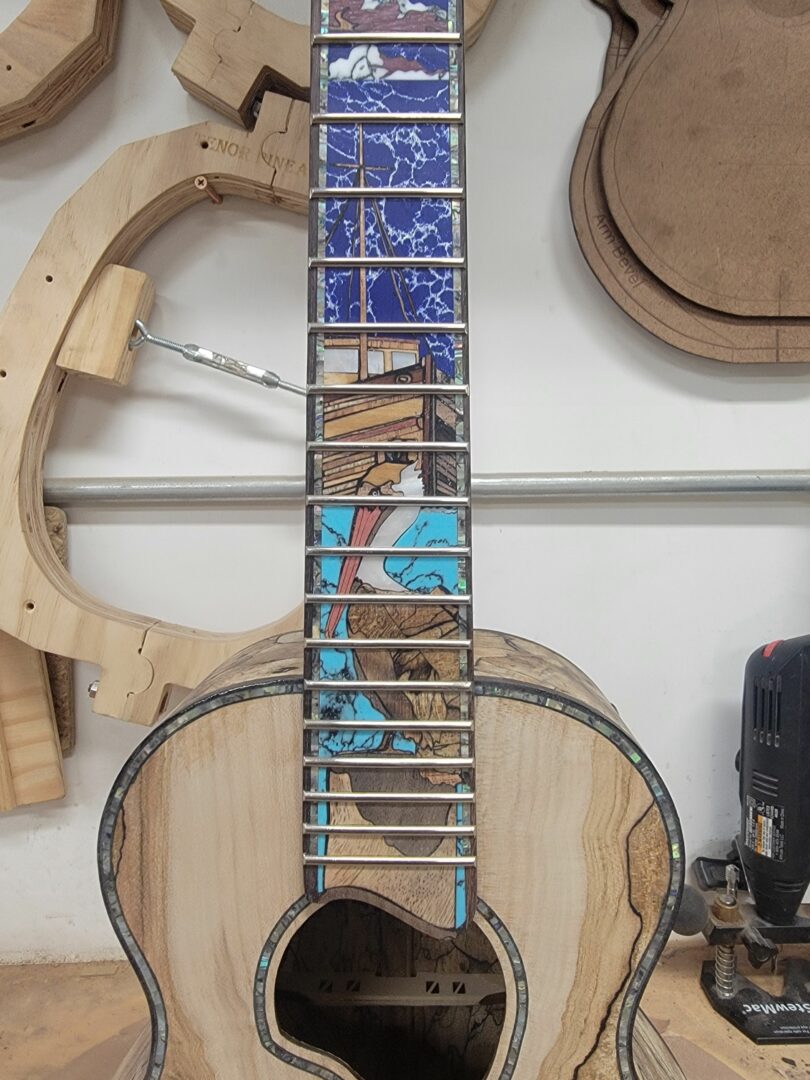
Let’s take a small detour – maybe you can share a bit about yourself before we dive back into some of the other questions we had for you?
Well my personal work is primarily Oil paintings, I also do some watercolor work occasionally. They are mostly landscape type paintings, but I also pair that with portraiture as well. I tend to paint in an almost cinematic way, large scale when I can and primarily focus on the relationship of contrast, strong lights and darks in the same work. I would say I also enjoy these kind of abandoned or forgotten things, often painting landscapes that strive to look into the past or of things that have outlived their usefulness. I’m really drawn to sci-fi as a genre, and how it really influences our world and can even predict the future in a way. In many sci-fi books and series there is often a sort of post-apocalyptic environment in where the rise of technology or culture has come and gone, leaving questions with no answers, only physical reminders of what once was. Not that my work is inherently dark or anything, but I think it’s often influenced by that idea of lost knowledge, of a golden era that was long past and the walk into the unknown.
My professional career right now is that of a luthier. I run the custom shop USA of an instrument manufacturer, primarily making ukuleles but I also make some accessories and other things as well. I never set out to be a luthier and don’t have any real training for the position, I just found myself in the right place at the right time. Covid hit, business slowed down, my boss wanted to elevate the brand of the company with a Custom Shop and I had the right skill set due to my mechanical background and BFA from CSULB. I began by reverse engineering some instruments that were laying around and started designing and developing systems from there. I learned 3d programming and modeling, CNC machining and laser engraving, and also all of the woodworking skills involved in instrument making. There are surprisingly a lot of skills that crossover from my sculpture classes at school and the drawing helps for making inlays. Basically though I am self-taught, but I think that aspect allows me to think of instrument building in a new and interesting way, that I’m not limited by boundaries that I’ve learned with traditional methods.
I think that’s one of the most exciting parts is being self-taught I really have no boundaries or expectations as to what I should be doing. I have ideas that traditional builders would say may or may not work, but I get to experiment, invent new techniques and bring these ideas to life. What’s quite special about it is that I am the only person in the shop so I do everything from selecting and processing the raw material, all the way up to painting the finish on and doing final assembly. It’s totally my brainchild and I get to create and have the final say in every single process and design element. Most shops that build instruments have a team of people and certain people that only do a certain job. There will be one person making bodies, another doing fretboards, another painting and even another that just does the final buff and polish. So I’ve got to rapidly expand my skill set as a builder in general by being forced to learn all of these different design elements and processes. I also took it upon myself to really figure out how to do intricate inlay work as well. There was a lot of trial and error, breaking tools and failed attempts, but I’m at the point now where I can draw up a design and see it come to life in a matter of days, it’s quite satisfying.
It is a ukulele company but as far as new things that are happening I’m actually expanding into the guitar world at the moment, which is more in my wheelhouse anyway. The market is just much bigger for those instruments so my boss wants to expand the line. I recently released a solid body steel string ukulele at the NAMM show in Anaheim this January and it was such a massive hit that I’ve got to start making more as soon as I’m back in the shop. Currently I’m the only person I know of that has designed and made a USA custom shop electric steel string ukulele, especially one that is completely original and not just a copy of one of the major manufacturers. Soon I will also be making and electric guitar line to complement that instrument, and will start doing some full size acoustic guitars as well. It’s exciting also because of the physical real estate on the instrument is so much bigger I can really start going crazy with the inlay work.
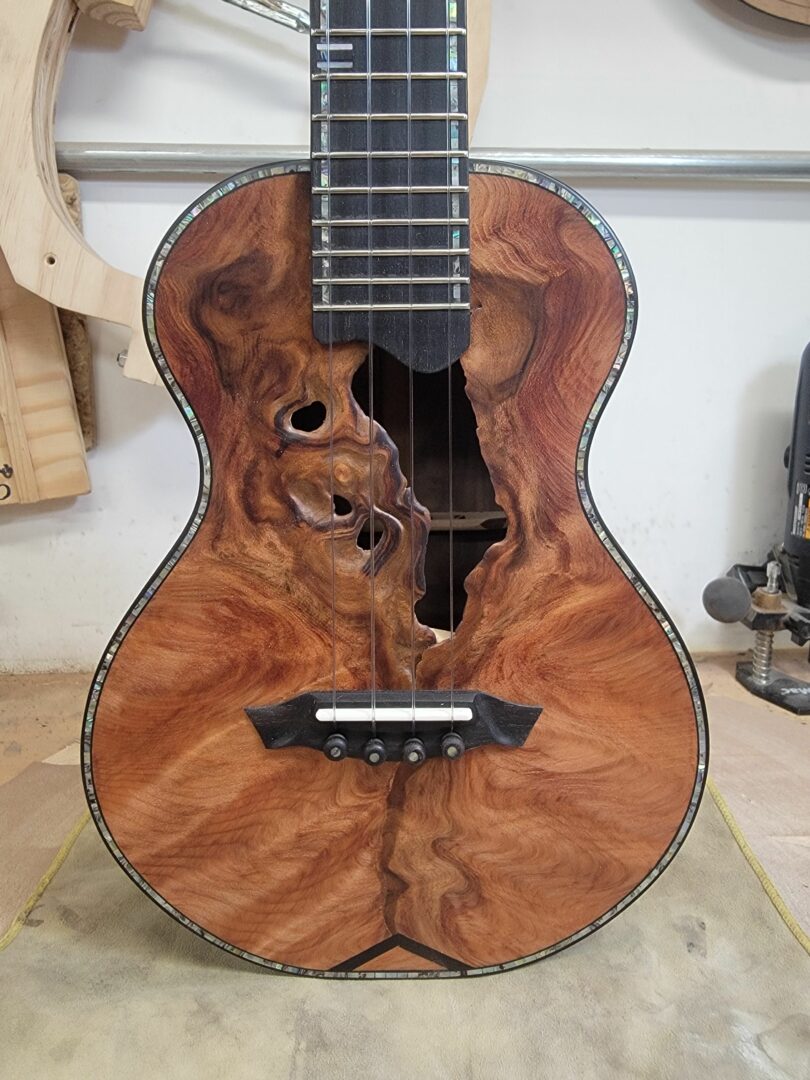
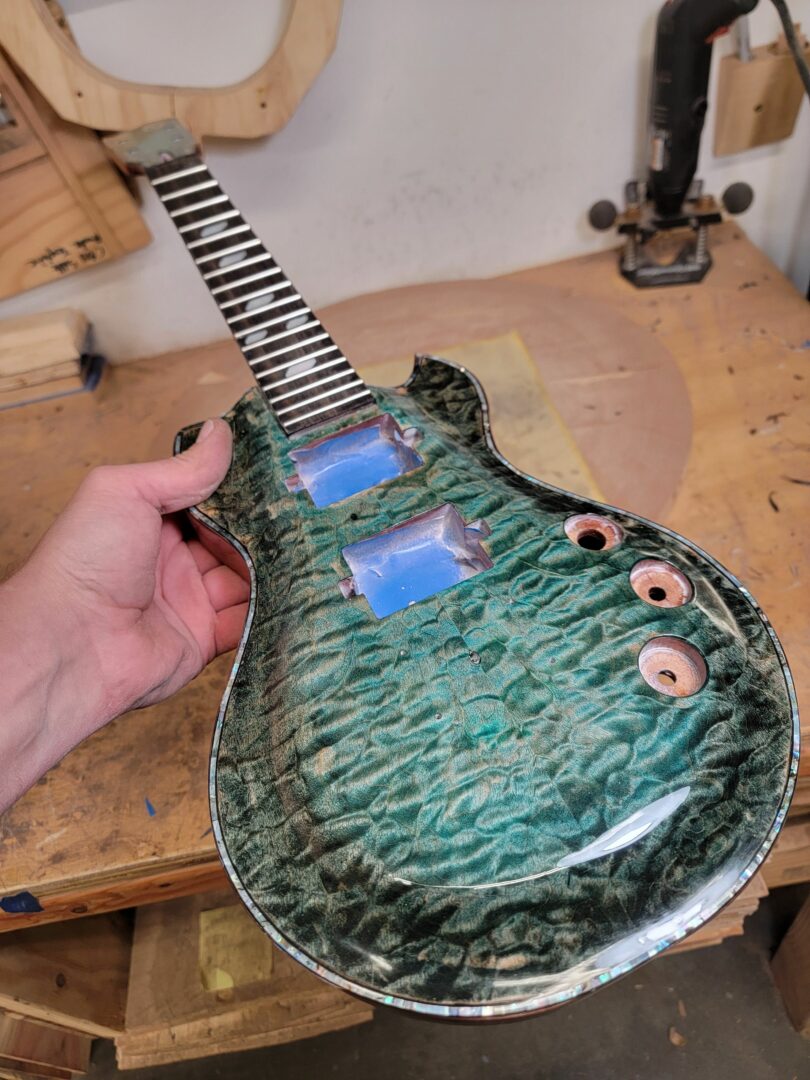
There is so much advice out there about all the different skills and qualities folks need to develop in order to succeed in today’s highly competitive environment and often it can feel overwhelming. So, if we had to break it down to just the three that matter most, which three skills or qualities would you focus on?
Looking back I think for my journey the most important things I learned were Integrity, knowledge of mechanics and how things work, and open mindedness. From Boy Scouts to the Army and everything in between, Integrity has kept me honest, driven, and allowed me to put my best foot forward no matter what. At pretty much any job I’ve ever had you always run into the type of people who do the absolute bare minimum required, shift the blame to others, and shy away from responsibility. One thing I’ve learned in life is that ultimately everything good and bad is my own fault and I have the ability to change and shift the outcomes of my own destiny. At some point growing up you have to take life into your own hands and own responsibility for everything that happens. There are things that will be out of your control, but your reaction to those things is your choice, and you can either chose positivity or negativity, to learn from those situations and grow from them, or let them define and destroy you. It really has allowed me to always go above and beyond of what I’m asked to do, and I wouldn’t have my current role in the Custom Shop otherwise. I basically made my own job, and when I hit roadblocks and didn’t know something I forced myself to learn it instead of giving up. Just being one of those people that goes above and beyond the job requirements, that isn’t just happy with the bare minimum, has really opened a lot of doors for me in the world and got me to places that otherwise wouldn’t have been available.
As a kid my dad restored cars and motorcycles, and I do the same thing. Not only does it save me a ton of money but allows me to resurrect these old forgotten things and give them a new life. We live in a throw away society, and I really hate that. Many companies out there build things with planned obsolescence and refuse to sell parts for things as well. That’s why there is a huge right to repair movement in America right now, especially with electronics for cell phones and certain car and farm equipment manufacturers. It not only saves a lot of money but also time as well. Rather than throw something out and have to wait for a new one which can stall projects, often times when something is broken it’s quite a quick simple fix to get things rolling again. It really has affected every aspect of my life as well. In the shop this mindset is crucial. Not only does it allow me to quickly fix and solve problems, but for a lot of my custom work there just aren’t any tools available or they just don’t exist. I’ve had to actually design and make all of my own molds, custom side bending jigs and machines, and all of my CNC fixtures. It’s because I’ve taken apart and fixed so many things over the years that I really understand how things work and am able to manufacture my own tools as necessary and fix others than need repair. There is also a lot of maintenance in the shop with expensive equipment that I simply couldn’t afford to just replace. It’s a necessity to be able to understand these mechanical workings, how to fix and maintain them, and to replace and install new parts when necessary. Things like bearings always need greasing, the moving parts and electronics on the machinery get clogged up with sawdust and need to be taken apart and cleaned, tools and motors break down and need refurbishing, the list goes on and on but if you are going to have a shop, you need to be able to fix your own machinery. It’s getting harder in the modern world with electronics, but my advice is start small, take things apart, even buy a few broken items and take a crack at fixing them. Not all projects are successful, but most are, and the knowledge you gain by understanding these things will improve your life tremendously and make everything a lot easier.
Open mindedness is a critical skill I think of any artist or creative as well. You don’t know everything, will never know everything, and we all borrow ideas from one another. I often think that there isn’t just one person that builds spaceships, but rather an extensive team of experts in their relative fields all coming together to make it possible. By closing your mind, you are only limiting your own potential and closing doors that may otherwise be open to you. There’s a saying that the best way to learn something is to teach it. I’m not a teacher but I am always willing to share knowledge and experience with others, it helps everyone grow as people. The main point is there is always something to learn, a perspective you haven’t thought of and different ways of doing the same task that are perhaps more efficient than the way you do something now. Don’t take criticism as an insult, take it as an opportunity to look deeper inward and reflect on your process.
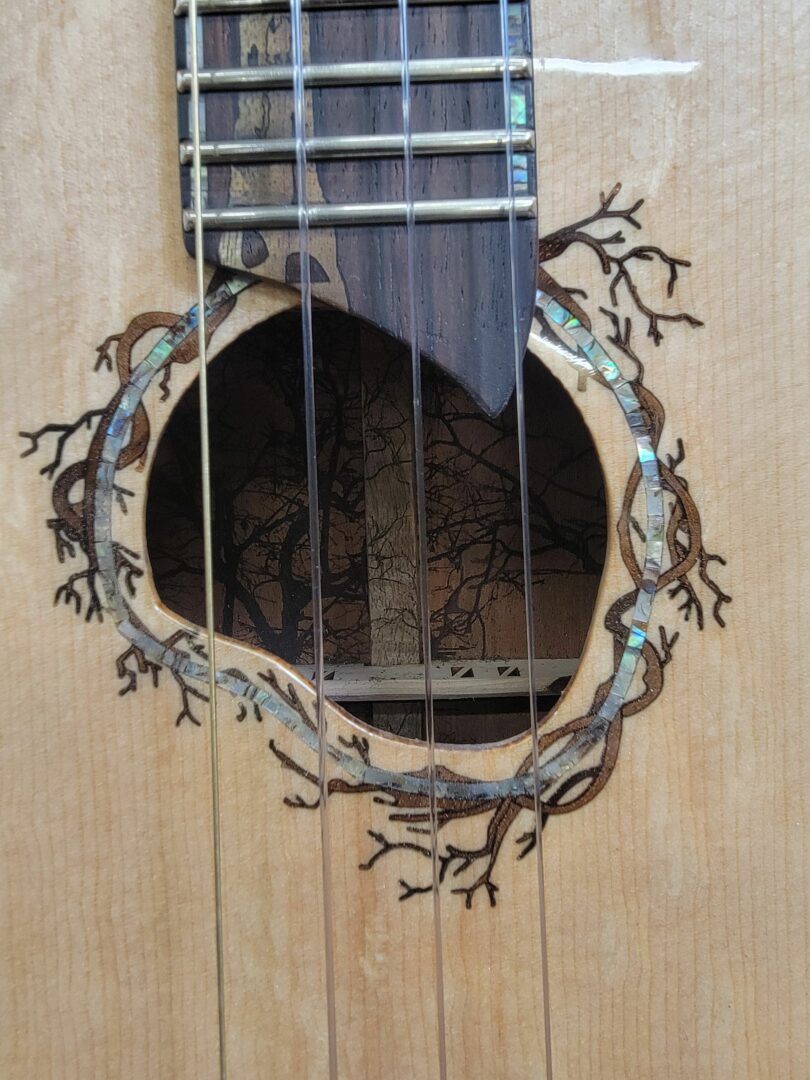
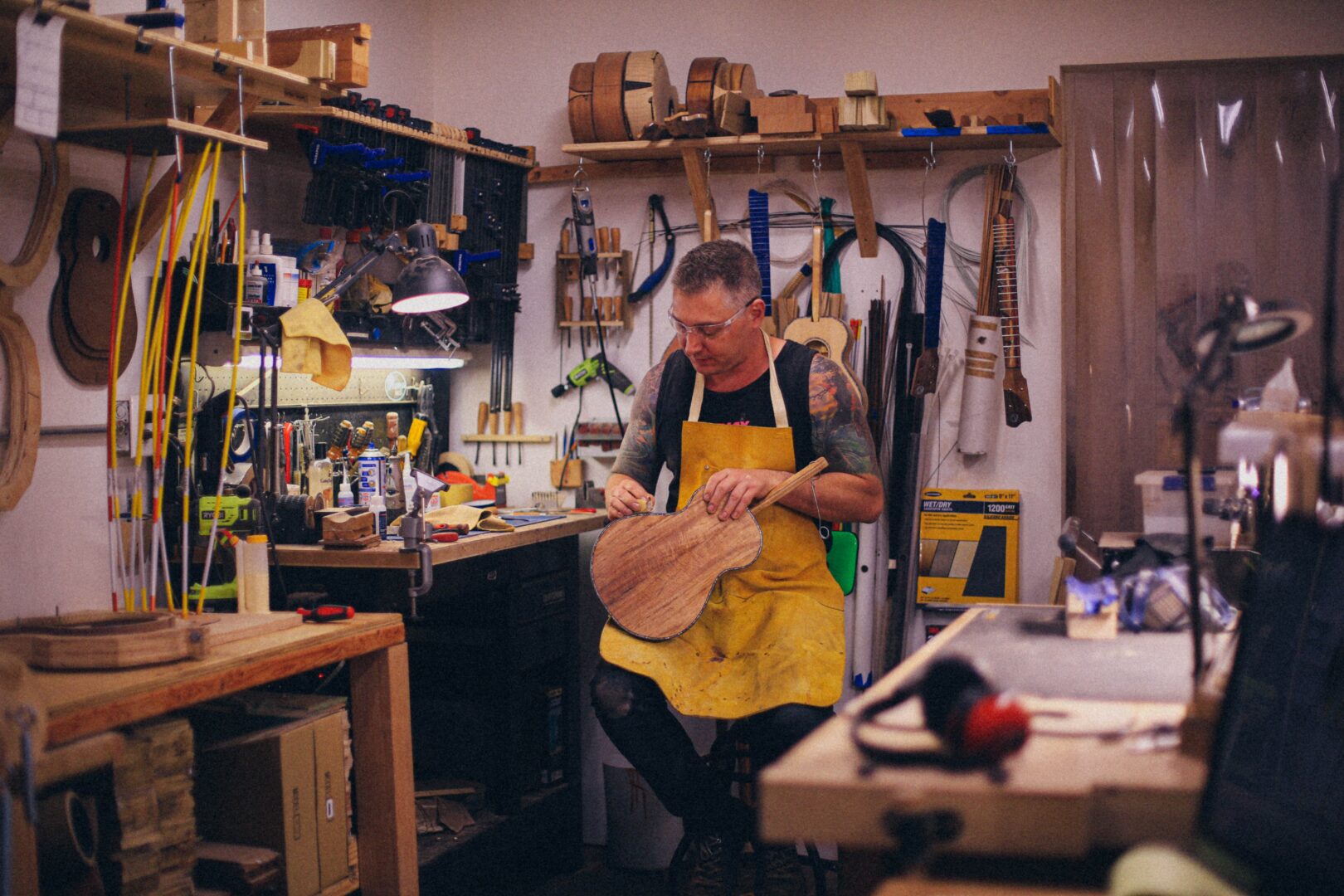
Do you think it’s better to go all in on our strengths or to try to be more well-rounded by investing effort on improving areas you aren’t as strong in?
This is an interesting question, and the answer is probably different for everyone but I can share what worked for me. There is something to be said about being a “jack of all trades yet master of none”. I often think of Adam Savage when I bring that quote out and how he talks about not being specifically really good at one thing but rather slightly good at all things. He’s made a career out of what he would call being mediocre, but the time he’s put into all of these random skills have got him where he is today. I think in today’s environment, if you focus on one skill and only one skill, you are really pigeonholing yourself and perhaps even doing a disservice to your craft. Most if not all the artists I know work in multiple mediums at the very least, and with the vast amount of information available to us it has become more common and even necessary in the modern world to be a multi-faceted. When I went to CSULB I was faced with a choice as far as what to do with my major. I’ve always been mechanically inclined and proficient in using tools, making objects with different mediums and building in general, so a sculpture major seemed like a good fit. Instead, I chose to major in drawing and painting instead, something in which I basically had zero experience in. I’m just one of those people who always has to do things the hard way, maybe to prove to myself that I can, or that the reward is often greater when accomplishing something you know you shouldn’t be good at. It was tough because most of my classmates grew up drawing to some degree, and I was often the odd man out. I remember struggling so incredibly hard in my life drawing classes, but the last semester when I finally got an A it made the whole thing worth it, like I truly had accomplished something for myself. I’m no expert of course, but I do consider myself able to draw and paint quite proficiently at this point. The entire time at CSULB I almost lived there, 8 am until at least 10 pm everyday, always in the studio, drawing at home constantly, and always taking pictures. I find it really helps to physically see your own progress over the months, and also helps you gain a different perspective on a piece when you are looking at a photo of it, a little trick from my professors. The reason I went this route was because I knew I had a weakness, a large gap in knowledge to fill, and I was also aware that learning the spatial awareness and how form and function interact in drawing would be key to elevating my sculptural work as well. So I think no matter what it is that you do, don’t take just the easy route or stick to things that you know. Challenge yourself, push boundaries and it will make you better in all aspects of your work.
Contact Info:
- Instagram: https://www.instagram.com/kahabkart
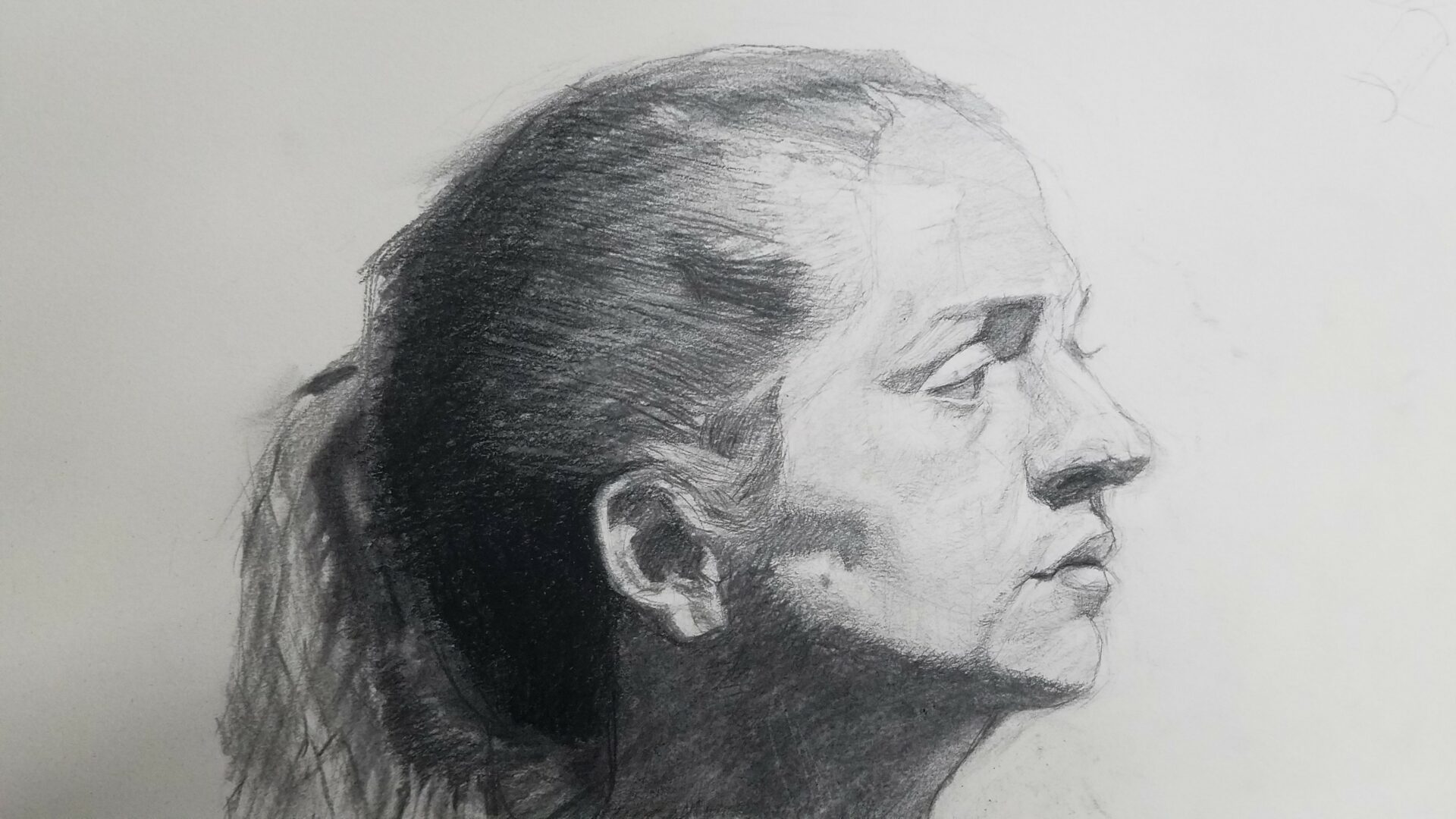
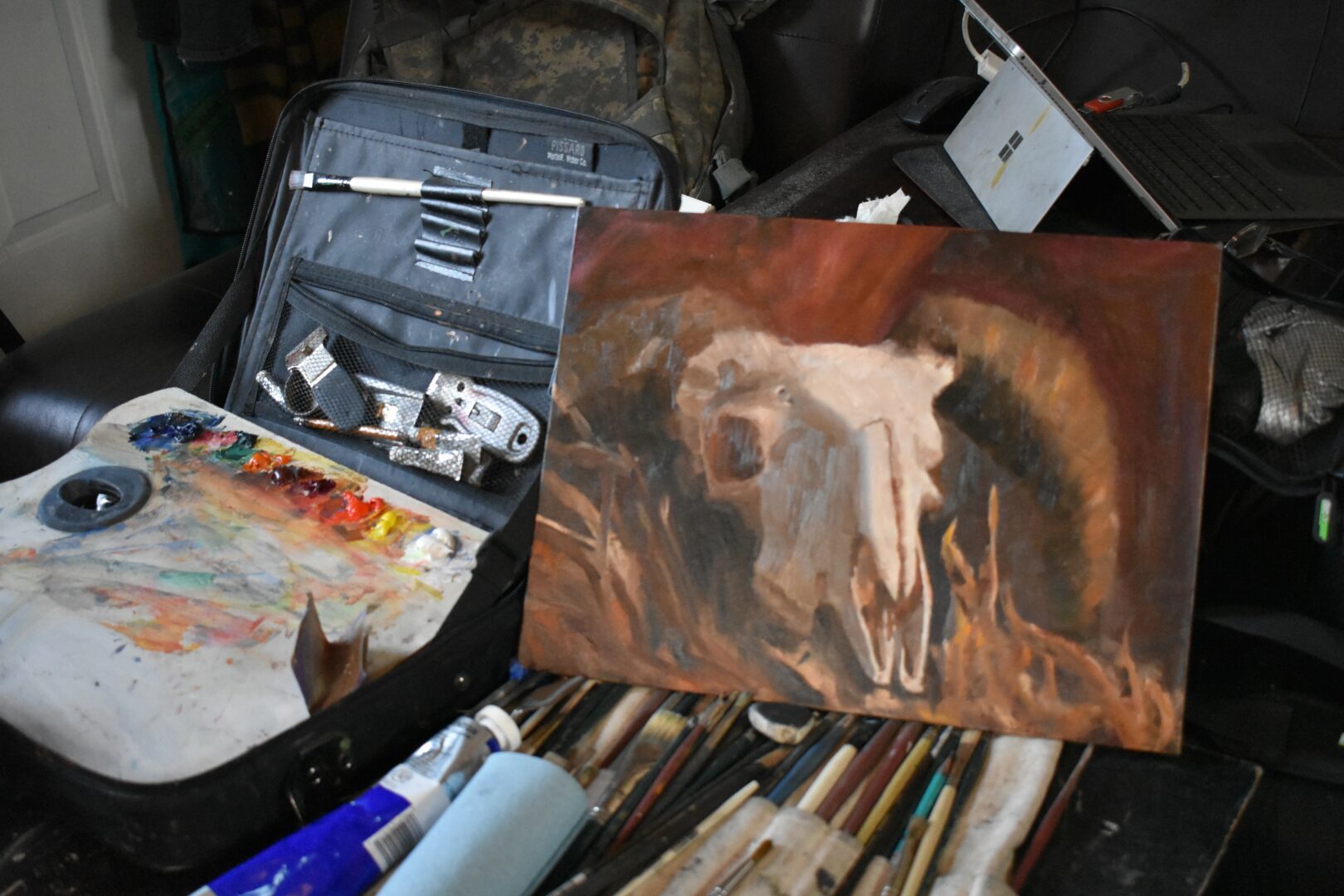
so if you or someone you know deserves recognition please let us know here.

